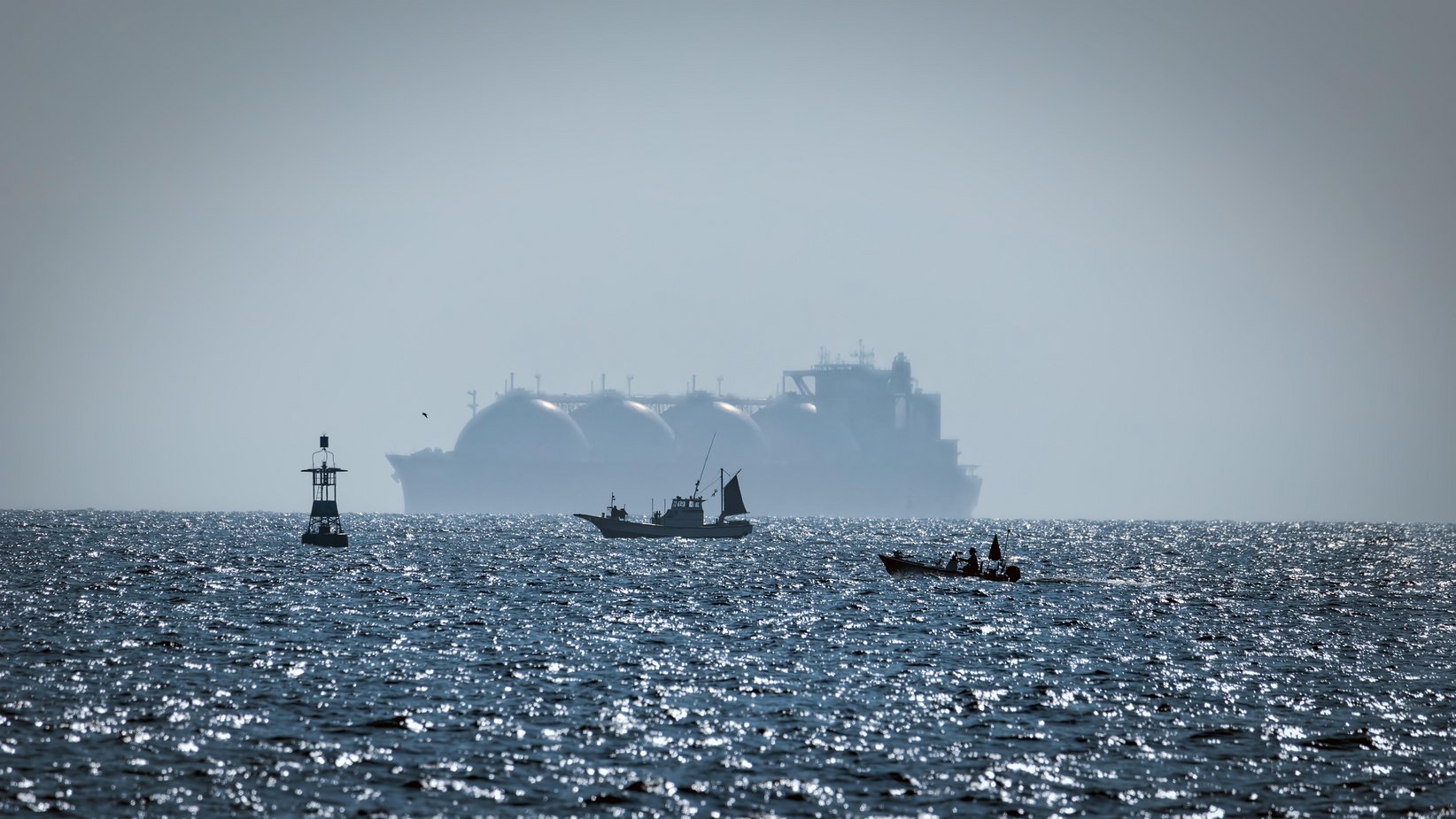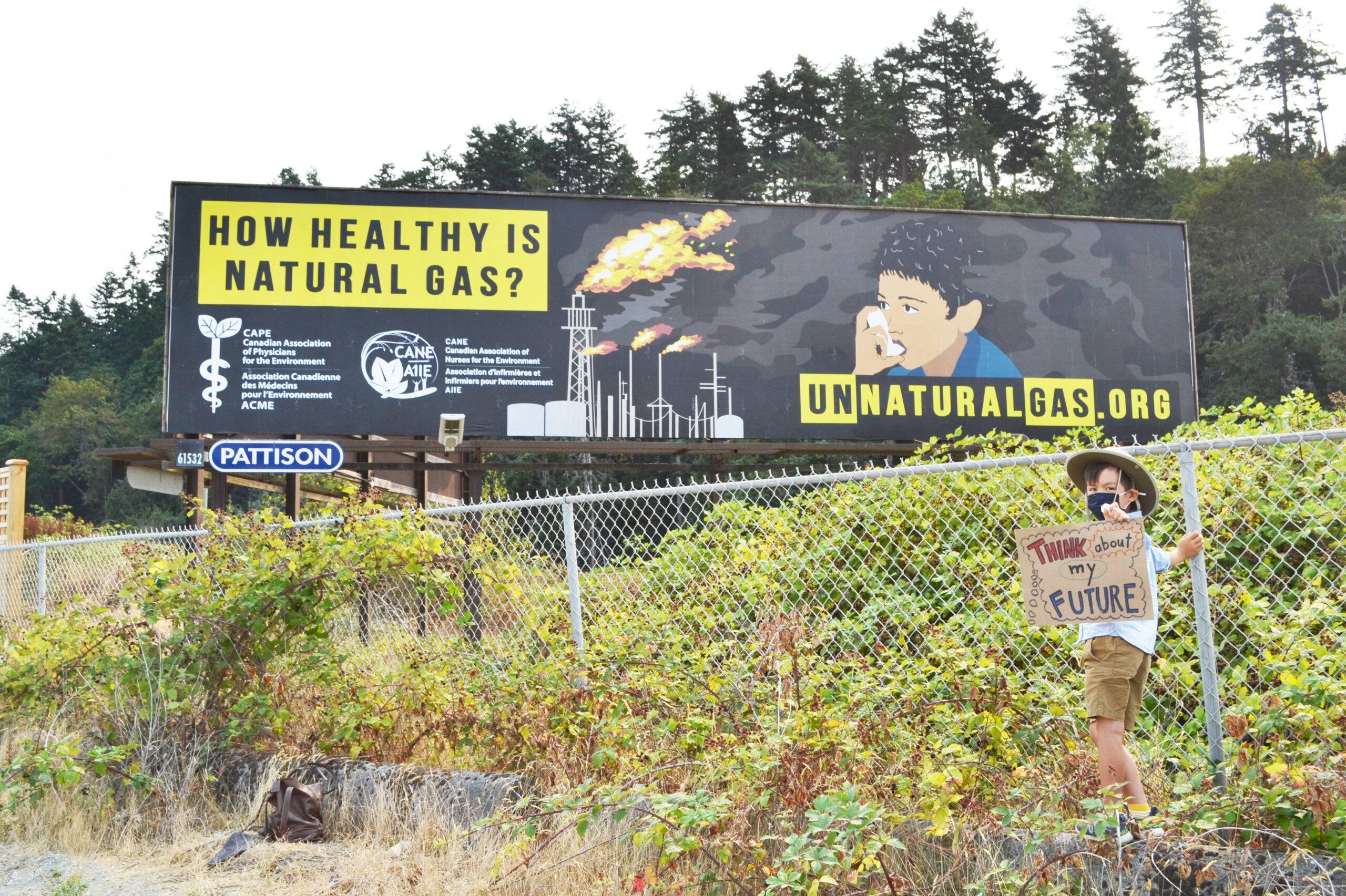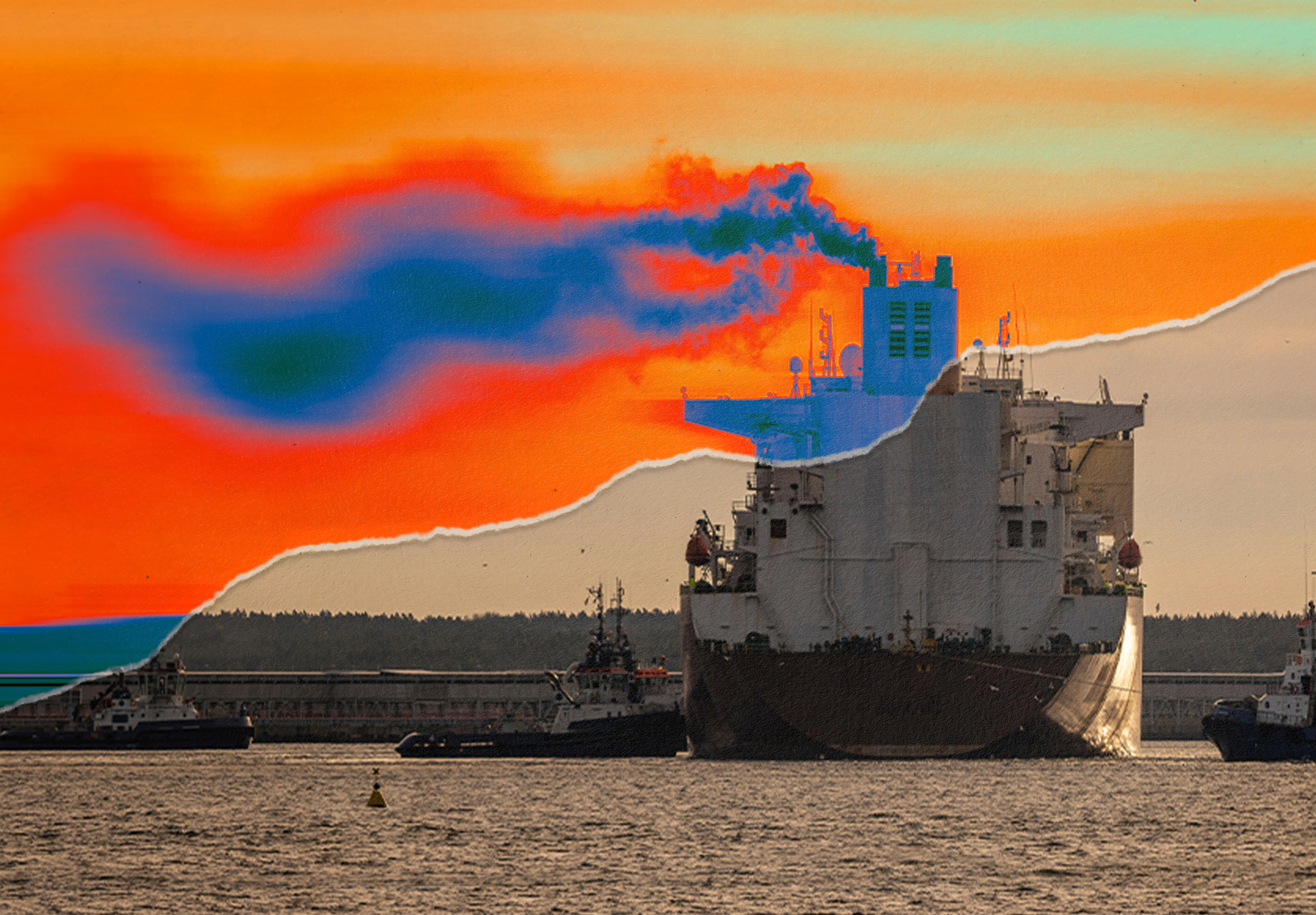
The LNG-fueled fleet of ships in operation doubled between 2021 and 2024.
Liquefied Natural Gas (LNG), Explained
The shipping industry is solely responsible for a billion metric tonnes of carbon dioxide emissions each year. To address these carbon emissions, LNG is increasingly being adopted as a transition fuel and greenwashed as a “climate-friendly” alternative to conventional marine fuels.
LNG won’t solve our energy challenges. It will exacerbate them. While being acclaimed as a low-carbon fuel, LNG actually emits significant amounts of methane—a harmful greenhouse gas that is 80 times more powerful at trapping heat in the atmosphere than carbon dioxide.
LNG proponents are gaslighting the shipping industry, policymakers, and investors down a dead-end path.
In order to actually work towards a decarbonized shipping future, we need to debunk the LNG myth and invest in real zero-emissions solutions.

Did you know? Methane is over 80 times more powerful than carbon dioxide at trapping heat in the atmosphere.
Climate Change
LNG is primarily composed of liquefied methane. Every stage of the LNG life cycle leaks methane emissions into the atmosphere. Methane is a powerful greenhouse gas—it’s responsible for 25% of global warming, leading to extreme weather, crop loss, rising sea levels, and wildfires.
Reducing methane emissions would have a significant impact in mitigating the climate crisis. This is why it is crucial to say “no” to LNG if we want to reach the Paris Agreement goal and keep global heating under 1.5°C.

Physicians warn the public about the health hazards of Liquefied Natural Gas.
Social Inequality
LNG production and consumption disproportionately impact racialized and low-income communities on a local to global scale —clearly perpetuating environmental injustices.
Health Impacts
There is an overwhelming body of scientific evidence that proves exposure to toxic emissions and chemicals from LNG production and fracking can cause higher rates of respiratory illness, asthma, childhood leukemia, heart disease, birth defects, and even death. In North America, many LNG production sites are located near Indigenous peoples, leaving communities to breathe in these toxic emissions for generations.
Strained Resources
LNG production uses a massive amount of water (over 250 billion gallons)—straining water resources. It also frequently pollutes groundwater, drinking water, and soil with chemicals and carcinogens.
Communities already vulnerable to the impacts of climate change—water scarcity, flooding, heatwaves, and other extreme weather events—are the ones paying the true cost of LNG pollution.
Financial Risk
The global LNG market is susceptible to geopolitics. The Russia-Ukraine war has exacerbated the volatility of natural gas supplies, causing LNG prices to skyrocket.
Investors and financiers have already stopped lending to natural gas projects due to public pressure for climate action. The World Bank advised countries to pull back from investing in LNG because it “is likely to play a limited role in the decarbonization of the shipping sector.”
Investing in Real Zero-Emission Solutions
While there is no one-size-fits-all solution to decarbonization, there are several things that we can do right now to decrease greenhouse gas emissions and halt climate change.

A Green Shipping Future is on the Horizon
We need all hands on deck! Here’s how you can join the movement:
Create strong climate policies that regulate methane. We need regulations now that tackle all greenhouse gas emissions — not only CO2 — in the near-term to address the urgent threat of climate change and ensure a livable future.
Work with climate leadership to create decarbonization strategies aligned with the Paris Agreement. Regulating methane emissions is low-hanging fruit that will secure the foundations for limiting the increase of our global temperature over the next 3 years.
Implement efficiency measures immediately and invest in zero-emissions fuels, technologies and infrastructure. This will help reduce the industry’s climate footprint, save fuel (and money), and transition towards a more sustainable future.
Stop the expansion of new and existing LNG shipping projects. It’s time for the entire shipping industry — including ports, container vessels, car carriers, cruises, and ferries — to end its dependency on fossil fuels and other unsustainable pathways.
Divest from LNG and pledge significant funds to address climate change. LNG is a dead-end solution: investments will lock in high emissions and lead to stranded assets. The financial sector plays a key role in climate mitigation and adaptation. Yet annual climate finance is a fraction of what’s needed to make sure we stay Paris-aligned. It’s time to commit sufficient funding to real solutions.
Build a collective understanding of climate justice and the foundations for global to local action. A just climate transition requires understanding the deep interconnectedness of social and environmental issues. This intersectional lens provides a richer narrative for activists’ demands and grassroots organizing. There is no climate justice without social justice.
Counter pro-LNG narratives with the facts. Leverage the latest data, insights, and evidence-based research to provide accessible and credible information that reach diverse audiences. We need community power to counter industry propaganda and expose LNG for what it really is.
We need all hands on deck!
Stay informed on all the latest updates and actions by following us on social media: Facebook, Twitter & LinkedIn.
And make sure to read our report and help us spread the word: The 21st Century Myth of Green Fossil Fuel for the Shipping Industry